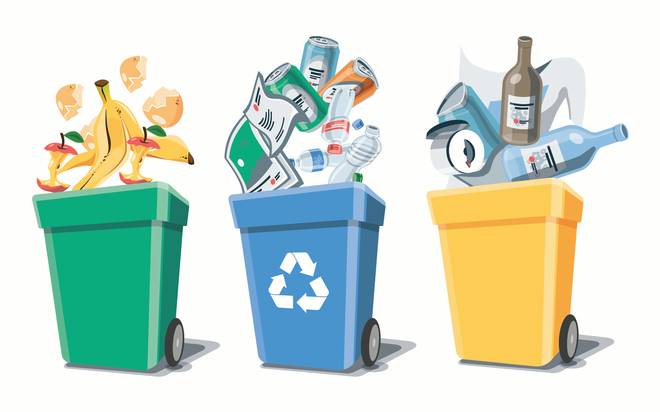A Quick Guide to Sorting Household Wastes
Finding out exactly how much rubbish, recyclables, and green waste your household generates on average presents a number of benefits. You’ll find out the best day of the week or month to schedule your waste pickup or skip bin service. Before hiring a service, you can compare skip bin hire prices and confidently choose bin sizes that you know you can maximise. Also, getting a good picture of your current waste situation can help you take steps to reduce the amount of rubbish that you generate.
Before getting started, take note that different places use slightly different guidelines for their kerbside collection systems and skip bins. In the City of Marion, for example, food scraps are considered green waste and are therefore allowed in the green bin; in the City of Melbourne, on the other hand, food scraps and garden organics belong to different bins. When in doubt, it’s always an option to check with your local council or ask your skip bin provider. For general advice, take a look at the guide below:
Yellow Bin: Recyclables
The yellow bin is for items that can still be recycled. By separating them from other types of waste, you’re helping ensure that these items will be reused and recycled, and that they will not unnecessarily occupy space in landfills. Here’s a list of items that belong in the yellow bin:
· Aluminium foil trays and wraps that have been cleaned and pressed into a ball
· Cans and tins, including empty aerosols and dry, empty paint tins
· Glass bottles and jars that have been cleaned and dried off
· Hard plastic like drink bottles, ice cream containers, bathroom bottles, and plastic pots
· Paper and cardboard such as newspaper, magazines, egg cartons, cardboard boxes, junk mail, envelopes, and pizza boxes
Make sure the items are clean and dry, and deposit them loose inside the bin. Smaller items, such as lids and caps, can be placed inside bigger containers.
Red Bin: Landfill
The red bin is meant for non-recyclable rubbish that will be delivered to landfills. In some areas, red bins are also used to accommodate food scraps such as meat and bones. In general, red bins are used for:
· General rubbish such as plastic bags, food wrappers, bubble wrap, and cling wrap
· Broken ceramics, crockery, or glassware
· Foam packing and polystyrene food trays and cups
· Nappies
· Old clothing and rags
· Ropes and hoses
At the same time, there are many types of waste that don’t belong in the red bin. Most of these items have designated collection facilities and drop-off points: hot ash; electrical appliances, batteries, and gadgets; cooking oil or motor oil; chemicals and poisons; liquid paint; bricks and other construction or demolition waste; and medicines, syringes, and sharps.
Green Bin: Organic Waste
The green bin is for compostable waste. After collection, the organic waste will be delivered to facilities where it will be processed into compost for gardens, parks, farms, and other areas with greenery. Here are the types of waste that belong in this bin:
· Lawn clippings
· Pruning less than 1 metre long
· Leaves, flowers, and weeds
In some places, the following types of waste are allowed in the green bin: compostable bags marked as AS4736, fish and shellfish, food scraps, meat and bones, and paper towels. Take note, though, that you shouldn’t throw soil, treated wood, gardening tools, or rocks with organic waste. If you’re not sure if an item belongs in the green bin or not, check first with your local council.
An afternoon of sorting rubbish can go a long way in helping you live a more eco-friendly lifestyle and in contributing to community efforts to reduce waste and landfill use. Remember your bin colours well, and don’t hesitate to ask questions if you’re not sure how you should dispose of the rubbish and waste in your home.




